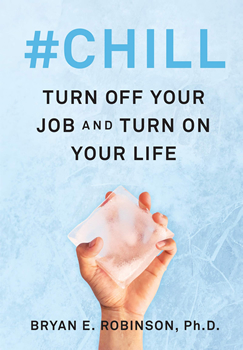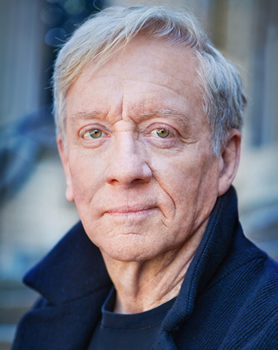

Writing Advice: Where You Write Makes a Difference
Writing Advice: Where You Write Makes a Difference
One major difference that sets writers apart from plumbers and electricians is that many of us work out of our homes. If you’re like most thriller writers, you have unique, perhaps even idiosyncratic, requirements for your workspace.
Novelist Jeffrey Deaver has his own way of concentrating. He turns off the lights, pictures the scene in his head, and writes in the dark. Kimberley Howe—executive director of International Thriller Writers and Thriller award winner for The Freedom Broker—is the exact opposite. “My creativity flows best when I’m on my laptop in a lounging position—an ocean view is ideal, but my Canadian reality is often snow covered and chilly,” she says. “I haven’t used a desk for writing in years.” And thriller writer Dean Koontz said he’s such a potential slacker that he doesn’t tempt himself with ocean views. “I have a sofa on which I never nap, big windows with an ocean view that I rarely see,” he says, “because I keep the pleated shades down at all times while working.”
When I interviewed thriller writer Lee Child, he said the physical locale doesn’t matter that much to him. “As a writer, your workplace is inside your head in your imagination,” he says. “You need a certain amount of resources such as a desk, keyboard, Internet and reference books. Inevitably, you end up with an office somewhere, and I have one in every one of our houses. That’s where I work.”
As you can see, there’s no one-size-fits-all solution. You have to determine what kinds of surroundings work best for you, then tailor them to your personal writing needs that are different for every thriller writer. Psychological research shows that, regardless of how you structure your writing environment, it has a direct correlation on how you craft your thriller. It can slow down or speed up your writing engagement and productivity. Far from being something at the back of your mind, figuring out what kind of writing space works for you needs your full attention if you want to pen that barn burner.
 Distractions in your writing environment can keep you in a state of low-grade stress and interfere with your creative juices in subtle ways. Factors that can interfere with concentration and focus include poorly designed writing stations, unsuitable furniture, lack of ventilation, bad lighting, or excessive noise. Unless you’re like Dean Koontz and Jeffrey Deaver, the presence of natural sunlight can help your writing potential soar. Keep blinds or shutters open, remove window treatments that block daylight, and wash the inside and outside of windows on a regular basis.
Distractions in your writing environment can keep you in a state of low-grade stress and interfere with your creative juices in subtle ways. Factors that can interfere with concentration and focus include poorly designed writing stations, unsuitable furniture, lack of ventilation, bad lighting, or excessive noise. Unless you’re like Dean Koontz and Jeffrey Deaver, the presence of natural sunlight can help your writing potential soar. Keep blinds or shutters open, remove window treatments that block daylight, and wash the inside and outside of windows on a regular basis.
While blasting Lady Gaga’s music might help some writers concentrate, others are distracted by loud music or excessive noise from the neighbor’s barking mutt. That’s when headphones, earplugs, or soft music come in handy. Or soundproofing with good insulation, window treatments, or sound machines. While other authors prefer to write in the safe confines of home with a little “comfort clutter” and disorganization so their surroundings don’t feel like a museum. Some might be neat freaks, more at ease with tidy, streamlined areas at home.
Other writers like Harlan Coben and John Hart prefer to write away from home to avoid distractions. “My house has too many distractions,” Coben says. “There’s the email. There’s checking my Amazon ranking…There’s the fax. Too many distractions. I like to go out and write.”
John Hart wrote most of his bestselling mysteries in the library. Brian Panowich, author and International Thriller Debut Writer Award winner, wrote his debut novel Bull Mountain in a closet at the fire station where he worked as a firefighter. And thriller writer Barry Lancet wrote much of his thriller JapanTown on a train during his morning commute to work.
The key is a safe writing space that appeals to your senses in a different way from the settings you associate with the stress and turbulence of everyday life. It’s a personalized space that contains everything you need to feel comfortable, creative, and productive. Under writing deadlines, a pleasant workstation eases stress, creates calm, and enables you to focus and concentrate.
Viewing nature from your writing window or bringing the natural world inside can reduce writing stress and promote calm and clarity. To bring the outside indoors, you can arrange your writing station to face scenes of wooded areas, water, wildlife, sunsets, or landscapes. If you live in an urban area, you can incorporate potted green plants, fresh flowers, a terrarium, a trickling waterfall, or a fishbowl in your writing space.
What defines safety, creativity, and comfort for you? Scented candles? Appealing paint colors? Vacation memorabilia with photos of loved ones, pets, and friends? An aquarium? Being outside in nature? Or anywhere, anytime?
You could be overlooking a secret ingredient in the secret sauce of your writing. Inventory your workspace for distractions—lighting, temperature, noise, and air pollution—to determine what steps you need to take to bolster focus and concentration. The ticket to reboot your writing mojo is creating a safe, comfortable space where you can concentrate that attracts your five senses in a different way from the settings you associate with daily pressures.
*****
Bryan Robinson is the author of over 40 books, including #CHILL: TURN OFF YOUR JOB AND TURN ON YOUR LIFE (William Morrow). He is a regular contributor to Forbes and Thrive Global. His award-winning murder mystery was published in 2014 and is being made into a short movie in 2022. He has appeared on 20/20, Good Morning America, ABC’s World News Tonight, NBC Nightly News, NBC Universal, The CBS Early Show, CNBC’s The Big Idea, and NPR’s Marketplace. He hosted the PBS documentary, Overdoing It: How to Slow Down and Take Care of Yourself and maintains a private psychotherapy practice in Asheville, NC.
To learn more about the author and his work, please visit his website.
- The Big Thrill Recommends: ORIGIN STORY by A.M. Adair - November 21, 2024
- Deadly Revenge by Patricia Bradley - November 21, 2024
- Unforgotten by Shelley Shepard Gray - November 21, 2024

